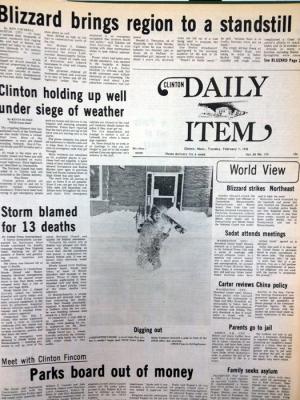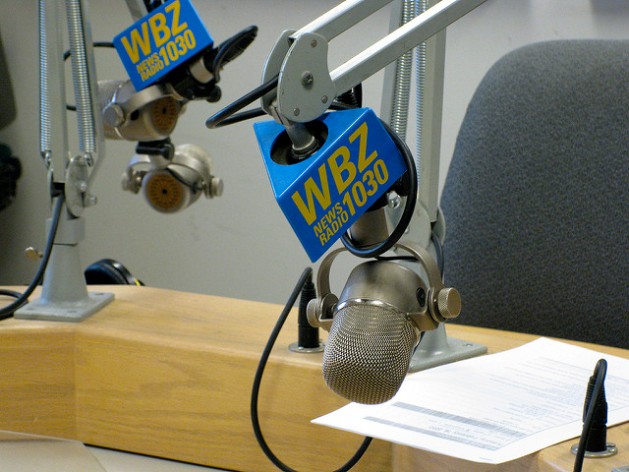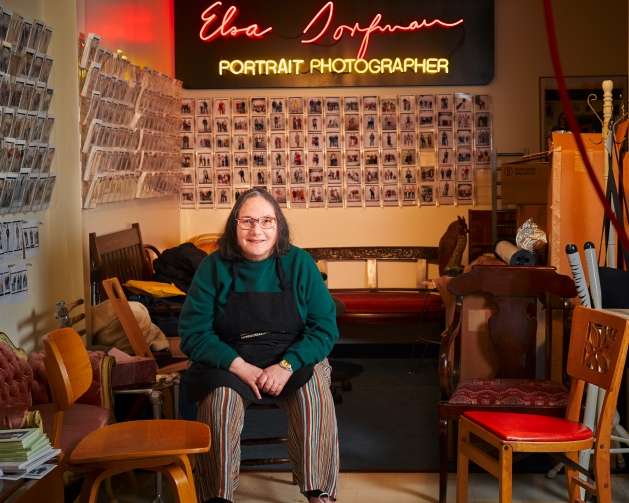
Photo by Emily Judem for WGBH News
Previously published at WGBHNews.org.
If I had a nickel for every time someone predicted the death of the Boston Herald over the past 25 years, I would have — well, many nickels. So I see last week’s announcement by Herald owner Pat Purcell that he plans to sell his paper to GateHouse Media as just one more bump in what has been an exceedingly bumpy road.
GateHouse, a national chain that owns more than 100 community weeklies and dailies in Eastern Massachusetts and environs, has given little indication of what it intends to do with the city’s number two paper. First the Herald has to go through bankruptcy, and though it’s likely GateHouse will end up with the tabloid, there is no guarantee.
What we do know is that a GateHouse-owned Herald will be smaller. Preliminary reports suggest that the staff will be cut from 240 to 175 across all departments. That is going to have a huge impact on the Herald’s newsgathering capacity, as the newsroom accounts for about half of that 240. On the other hand, a daily newspaper with 175 employees should still be able to do good work and provide at least some competition to The Boston Globe.
Twelve years ago, as The Boston Phoenix’s media columnist, I offered five suggestions for how the Herald could improve and build a more sustainable business. With the Herald changing ownership for the first time since 1994, when Purcell bought it from his mentor Rupert Murdoch, I thought I’d take a look at what I had to say in 2005 and see whether any of it is relevant today.
1. Get smart. This is probably the single most important step that GateHouse could take in trying to appeal to new readers. More than 20 years ago, a journalist who had left the paper told me something he’d once said to Purcell. It went approximately like this: You’ve already got all the stupid readers, Pat. You need to find a few smart ones as well.
Unfortunately, Purcell never really took that advice. From the mid-1990s until the early 2000s, the Herald thrived on the strength of strong local news coverage, an aggressive business section, an excellent sports section, and good photography. But as the economics of newspapering began to crater, the Herald embraced a flash-and-trash approach while continuing to get smaller.
In recent years, under editor Joe Sciacca, the sensationalism has been toned down considerably, and the daily report is solid if shrunken. But the goal seemed to be to hang onto the paper’s shrinking pool of existing readers rather than try to cultivate, say, the young workers in Boston’s growing innovation economy — many of whom may not be as liberal on economic issues as the Globe thinks they are and who would thus be open to an alternative.
2. Upgrade the look. Twelve years ago I wrote: “Newcomers to Boston no doubt are perplexed when they hear old-timers refer to the Herald as ‘the Record.’ That’s a reference to the Record American, a Hearst-owned tabloid from a bygone era that, along with several other papers, eventually morphed into the modern Herald. Trouble is, the Herald really does look like the Record, if the Record could be exhumed, updated a bit, and printed in color.”
Unfortunately, nothing has changed. Today, as I did then, I would recommend a makeover along the lines of (for instance) the Boston Business Journal, an attractive tabloid that takes a more restrained approach. The old urban tab look is perfect if you’re looking for something to fold up and take with you to Suffolk Downs — provided you’re going to the horse races. Now the city hopes the Suffolk Downs property will become Amazon’s second headquarters. GateHouse ought to be thinking about how to design a Herald that will appeal to the sort of young, highly educated folks who would work there — a sizable group even if Amazon ultimately picks another city.
3. Turn right. Despite the Herald’s reputation as a bastion of right-wing Trumpery, the paper’s editorial pages have long been rather staid and moderate. The right-wing reputation comes from a few of its news columnists, especially Howie Carr, who’s long since slid into self-parody; Joe Fitzgerald, a former sportswriter who traffics in snoozy social conservatism; and Adriana Cohen, who recycles seemingly every talking point from Fox News, including the network’s outrageous attacks on the FBI.
The opinion pages, on the other hand, carry respectable syndicated conservatives like Jonah Goldberg, George Will, and Michael Gerson, as well as local voices like freelancer Jim Sullivan, who rarely writes about politics. What would help is if editorial-page editor Shelly Cohen recruited some young, smart, conservative local columnists. Surely there’s some recent college graduate out there who wants to be the next Ben Shapiro or Tomi Lahren who’d be willing to work for a low salary and a shot at Twitter immortality. Unfortunately for the Herald, now as then, the best conservative columnist in Boston is Jeff Jacoby — a Herald alumnus who left the paper for the Globe many years ago.
4. Dump the website. I first made this recommendation on the grounds that the Herald simply didn’t translate well online — it was a quick read that people flip through on the subway or at Dunkin’ Donuts just before they go to work. Today’s smaller Herald is an even quicker read. Besides, the Herald’s website is not exactly a joy to navigate, though its mobile app is decent.
What I hadn’t anticipated 12 years ago was that the Herald would launch an internet radio station that has become an integral part of the paper’s identity. The problem is that it is essentially an old-fashioned conservative talk station, and people listen to talk radio in their cars, most of which are not especially well suited to streaming audio. But it has been a worthwhile experiment, and GateHouse should continue with it.
5. Live free or die? Purcell never wanted to take this step, though there was some buzz that he might when the free commuter tab Metro first came to Boston. I thought a free Herald could make sense; certainly it’s a better read than the Metro. Moreover, the Herald relies on point-of-purchase sales, and there are simply fewer places to buy newspapers than there used to be.
The trend in newspapers these days is to charge as much as the market will bear, either in print or online. Persuading readers to pay for journalism is essential given the collapse of digital advertising (for anyone other than Facebook and Google) and the ongoing decline of print advertising. But what little advertising value remains in newspapers is all on the print side. And if GateHouse can cut expenses enough (probably the one thing the compay is really, really good at), it might be able to turn a profit with a free Herald.
Last week’s announcement that the Herald would be sold was good news in the sense that Boston will continue to have two daily papers. But it’s sad, too, because a lot of people will be losing their jobs, and the likelihood is that the Herald is going to offer less. “More newspapers mean more coverage,” wrote Herald sports columnist Steve Buckley over the weekend. “More newspapers mean more opinions. And listen up, Globe: More newspapers mean more hustle. If we lose the Herald, the Globe will lose something as well.”
So, too, will all of us.
Talk about this post on Facebook.
 Tom Farragher’s column in today’s Boston Globe is a two-fer for me. Farragher writes about a recent effort to save the archives of The Item, formerly The Daily Item of Clinton. It turns out that one of those involved was Sean Kerrigan, a former Item reporter who’s now chair of the town’s select board. I worked with Sean at The Boston Phoenix, so it was nice to run across his name.
Tom Farragher’s column in today’s Boston Globe is a two-fer for me. Farragher writes about a recent effort to save the archives of The Item, formerly The Daily Item of Clinton. It turns out that one of those involved was Sean Kerrigan, a former Item reporter who’s now chair of the town’s select board. I worked with Sean at The Boston Phoenix, so it was nice to run across his name.






